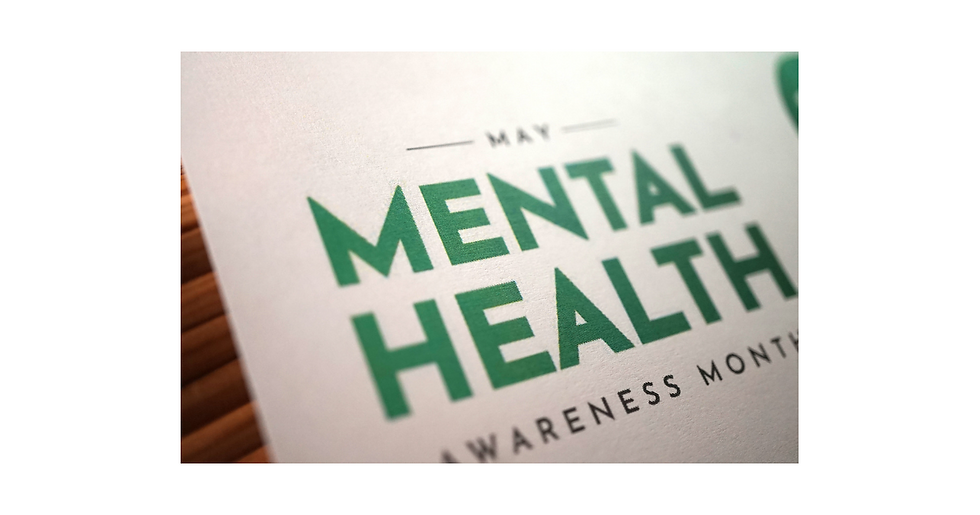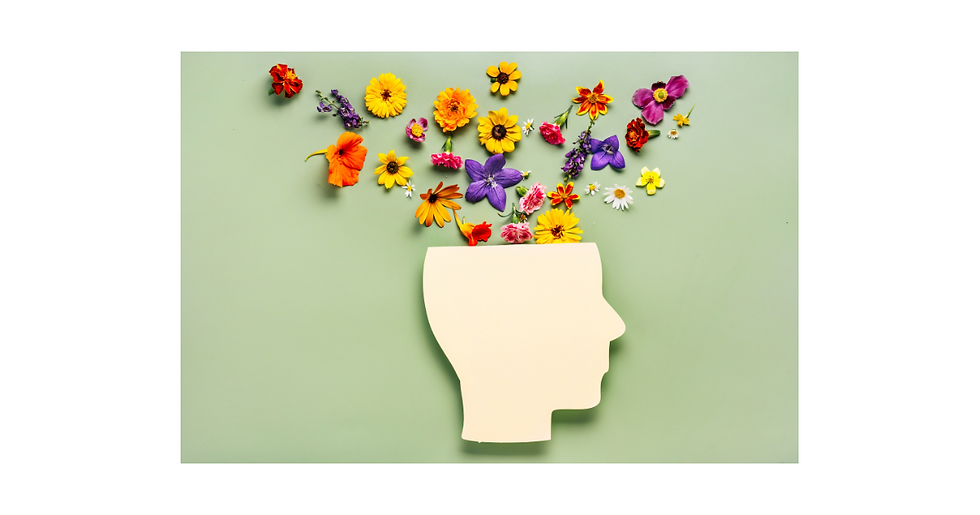May Is Mental Health Awareness Month: The Power of Self-Love for Mental Wellbeing
- What Makes You Feel Beautiful

- May 21, 2023
- 4 min read

May is Mental Health Awareness Month, a time to shed light on the importance of mental health and wellbeing. In today's fast-paced world, where stress and anxiety often take center stage, it's crucial to prioritize self-care and self-love. With that in mind, What Makes You Feel Beautiful, a nonprofit organization, aims to promote self-love and self-care in girls and women through its empowering program called F.L.Y. (First Love Yourself).
This blog explores the profound impact self-love can have on mental health and wellbeing, and how joining programs like F.L.Y. can transform lives. At the end you can take the self-care and mental health quiz specifically designed for girls and women.
Self-Love and Mental Health:
Self-love refers to accepting and nurturing oneself, embracing imperfections, and recognizing one's worth. When we cultivate self-love, we develop a positive relationship with ourselves, which can have significant benefits for our mental health and overall wellbeing.

Here are a few ways self-love contributes to our mental wellbeing:
Improved Self-Esteem: Self-love helps build a strong sense of self-worth and self-esteem. By recognizing our strengths and accepting our flaws, we develop a healthier self-image and a more positive outlook on life.
Reduced Stress and Anxiety: Practicing self-love involves prioritizing self-care and setting boundaries. Taking time for ourselves, engaging in activities we enjoy, and caring for our physical and emotional needs can significantly reduce stress levels and alleviate anxiety.
Increased Resilience: When we love and accept ourselves, we become more resilient in the face of adversity. Self-love fosters a sense of inner strength and confidence, enabling us to bounce back from setbacks and cope with life's challenges more effectively.
Enhanced Relationships: Cultivating self-love allows us to build healthier and more fulfilling relationships. When we love ourselves, we can set healthy boundaries, communicate our needs effectively, and choose relationships that align with our values and aspirations.
Improving self-awareness: Self-love and self-care activities can help you tune in to your emotions and needs, which can increase your self-awareness. This can help you identify when you need support or when you are feeling overwhelmed, allowing you to take appropriate action to protect your mental health.
Boosting mood: Engaging in self-care activities that you enjoy can help boost your mood and increase feelings of happiness and contentment. This can have a positive impact on your mental health.
Decreasing negative self-talk: Practicing self-love involves treating yourself with kindness, compassion, and respect. This can help counteract negative self-talk and reduce self-criticism, which can improve your mental health.

F.L.Y. First Love Yourself Program:
What Makes You Feel Beautiful offers an empowering program called F.L.Y. (First Love Yourself) that encourages girls and women to embrace self-love at every age and phase of their lives. The F.L.Y. program provides a safe and supportive community where individuals can explore self-care practices, develop self-esteem, and learn tools to enhance their mental wellbeing.
Through workshops, group activities, and mentorship, F.L.Y. program participants gain valuable insights and skills to nourish their mental health. They are encouraged to prioritize self-care, set boundaries, practice self-compassion, and embrace their unique qualities. By fostering a sense of belonging and empowerment, F.L.Y. equips girls and women with the tools to navigate life's challenges and cultivate a lifelong practice of self-love.
self-care and mental health quiz specifically designed for girls and women:
How often do you prioritize self-care activities in your daily routine?
a) Rarely or never
b) Occasionally
c) Regularly
d) Always
How do you manage stress in your life?
a) I don't have effective stress management techniques
b) I rely on unhealthy coping mechanisms (e.g., excessive eating, substance use)
c) I practice healthy stress management techniques (e.g., exercise, meditation, journaling)
d) I actively seek professional help when needed
How often do you engage in physical activities or exercise?
a) Almost never
b) Occasionally
c) Regularly (at least 3-4 times a week)
d) Daily
How often do you make time for hobbies or activities you enjoy?
a) Rarely or never
b) Occasionally
c) Regularly
d) Always
How well do you prioritize sleep and establish a consistent sleep routine?
a) I struggle with maintaining a regular sleep schedule
b) I try to prioritize sleep but often fail to do so
c) I have a fairly consistent sleep routine
d) I prioritize sleep and maintain a regular schedule
How often do you engage in relaxation techniques, such as deep breathing or progressive muscle relaxation?
a) Never
b) Occasionally
c) Regularly
d) Always
How comfortable are you with seeking help or talking to someone about your mental health concerns?
a) I find it difficult to open up about my struggles
b) I am somewhat comfortable seeking help
c) I am comfortable seeking help and talking about my mental health
d) I actively seek professional help when needed and have a support system
How often do you practice self-compassion and positive self-talk?
a) Rarely or never
b) Occasionally
c) Regularly
d) Always
How well do you manage your time and set boundaries to avoid feeling overwhelmed?
a) I struggle with time management and setting boundaries
b) I try but find it challenging to manage my time and set boundaries
c) I am fairly good at managing my time and setting boundaries
d) I am excellent at managing my time and setting boundaries
How often do you engage in activities that promote social connection and support?
a) Almost never
b) Occasionally
c) Regularly
d) Always
Scoring:
For every (a) response, assign 1 point
For every (b) response, assign 2 points
For every (c) response, assign 3 points
For every (d) response, assign 4 points
Interpretation:
10-20 points: It seems that you may be neglecting your self-care and mental health. It's important to prioritize yourself and seek support when needed.
21-30 points: You have some self-care practices in place, but there is room for improvement. Consider incorporating additional strategies into your routine.
31-40 points: You are doing a good job of taking care of your mental health. Keep up the great work and continue to prioritize self-care.
41-50 points: You have excellent self-care habits and a strong focus on mental health. Your commitment to self-care is commendable!
*Remember, this quiz is not a substitute for professional advice. If you have concerns about your mental health, it's important to seek guidance from a mental health professional.
Sponsor the F.L.Y. program Here

.png)




Comments